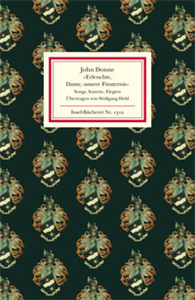Your Search Results
-
Metaichmio Publications S.A.
Metaichmio was founded in 1993 and today is one of the most important and leading publishing companies in Greece, specializing in translated and Greek fiction, as well as in children’s and educational books, academic books, biographies, contemporary comment and graphic novels, both translated and original. Our list includes many multi-awarded Greek authors and illustrators. Over the years, our original titles (children’s and adult) and our acclaimed contributors have been awarded among others with the following distinctions: The Greek State Prize (for Adult and Children’s Literature) Academy of Athens Novel Prize IBBY awards and nominations Mentions in the White Raven Catalogue of the International Children’s Library of Munich Nominations for the Hans Christian Andersen Illustration Award “Public” Book Awards Literary Prizes awarded by Anagnostis / Dekata literary magazines
View Rights Portal
-
Promoted ContentMarch 2009
Erleuchte, Dame, unsere Finsternis
Songs Sonette Elegien. Zweisprachige Ausgabe
by John Donne, Wolfgang Held, Wolfgang Held, Madeline Mary Duff
Aus dem Schwarm der metaphysical poets ragt John Donne, Zeitgenosse von Shakespeare und Marlowe, als ihr Doyen und Meister hervor. Seine bildreichen und komplexen Gedichte, vor allem die zynisch-erotischen, geistvoll zugespitzten, enthusiastisch brutalen Liebesgedichte, wirken bis heute und gehören zum festen Bestand lyrischer Sprachkunst. Wolfgang Helds temperamentvolle Übertragung bietet in Metrum und Reim eine äußerste Annäherung an die Originale. Ein Vorwort und ein Essay erschließen die Entwicklung John Donnes vom elisabethanischen Kavalier zum todessüchtigen Dekan von Sankt Paul und bestimmen die Poetologie seiner Gedichte zwischen bildkräftiger Anschauung, intellektueller Kombinationskunst und leidenschaftlicher Ausdruckskraft.
-
Promoted ContentLiterature & Literary StudiesAugust 2021
Spenser and Donne
Thinking poets
by Yulia Ryzhik
The names Edmund Spenser and John Donne are typically associated with different ages in English poetry, the former with the sixteenth century and the Elizabethan Golden Age, the latter with the 'metaphysical' poets of the seventeenth century. This collection of essays, part of The Manchester Spenser series, brings together leading Spenser and Donne scholars to challenge this dichotomous view and to engage critically with both poets, not only at the sites of direct allusion, imitation, or parody, but also in terms of common preoccupations and continuities of thought, informed by the literary and historical contexts of the politically and intellectually turbulent turn of the century. Juxtaposing these two poets, so apparently unlike one another, for comparison rather than contrast changes our understanding of each poet individually and moves towards a more holistic, relational view of their poetics.
-
 Trusted Partner
October 2019
Trusted Partner
October 2019Berlin Hamlet
Gedichte
by Szilárd Borbély, Heike Flemming, Heike Flemming
Szilárd Borbély, der vor einigen Jahren mit seinem Roman Die Mittellosen international Aufsehen erregte, gilt als der bedeutendste ungarische Lyriker seit 1989. Erstmals liegen nun zwei Gedichtzyklen auf Deutsch vor: Zustandsbeschreibungen eines wahrnehmungssensiblen Ich, das in ruhigem Parlando über sich und seine Umgebung reflektiert (Berlin-Hamlet), und ein formstrenges Brevier von Trauergedichten, die auf ein ungesühntes Verbrechen eine Antwort suchen (Leichenpomp). Ein mitteleuropäischer Flaneur streift durch das aufgerissene, im Umbruch begriffene Berlin der neunziger Jahre, sein Blick folgt dem Flugzeug über der Hermannstraße im Landeanflug auf Tempelhof, verirrt sich im Gewirr bunter Rohrleitungen über den Ausschachtungen, im Wald der Kräne am Potsdamer Platz. Gattungsbezeichnungen wie Allegorie, Brief, Epilog und Fragment, Zitate aus Shakespeare-Sonetten, aus Benjamins Passagenwerk und Kafkas Briefen an Felice verbannen die Stadtansichten in die Kulisse – es ist ein urbaner metaphysical poet, besessen vom Gedanken der Vergänglichkeit. Der gewaltsame Tod der Eltern, die einem Raubmord zum Opfer fielen, und die Vernichtung der ungarischen Juden wurden zu Borbélys Lebensthema. In Leichenpomp greift er auf dichterische Formen katholischer Frömmigkeit und auf chassidische Legenden zurück, um dem Unerträglichsten einen Ausdruck abzuringen, der jegliche Erlösungsbotschaft verneint.
-
 Trusted Partner
Trusted Partner
-
 Trusted Partner
Trusted Partner
-
 Trusted Partner
Humanities & Social SciencesAugust 2004
Trusted Partner
Humanities & Social SciencesAugust 2004Subversive Spinoza
Antonio Negri
by Timothy S. Murphy, Gerard Greenway, Michael Hardt, Edward Stolze, Charles T. Wolfe
In Subversive Spinoza, Antonio Negri spells out the philosophical credo that inspired his radical renewal of Marxism and his compelling analysis of the modern state and the global economy by means of an inspiring reading of the challenging metaphysics of the seventeenth-century Dutch-Jewish philosopher Spinoza. For Negri, Spinoza's philosophy has never been more relevant than it is today to debates over individuality and community, democracy and resistance, and modernity and postmodernity. This collection of essays extends, clarifies and revises the argument of Negri's influential 1981 book 'The Savage Anomaly: The Power of Spinoza's Metaphysics and Politics' and links it directly to his recent work on constituent power, time and empire. ;
-
 Trusted Partner
Humanities & Social SciencesJune 2005
Trusted Partner
Humanities & Social SciencesJune 2005Reading Walter Benjamin
Writing through the catastrophe
by Richard Lane
'Reading Walter Benjamin' explores the persistence of absolute in Benjamin's work by sketching-out the relationship between philosphy and theology apparent in his diverse writings, from the early youth-movement essays to the later books, essays and fragments. The book examines Benjamin from two main perspectives: a history-of-ideas approach situating Benjamin in relation to the new German-Jewish thinking at the turn of the twentieth-century, as well as the German youth movements, Surrealism and the 'Georgekreis'; and a conceptual approach examining more critical issues in relation to Benjamin and Kant, modern aesthetics and narrative order. Chapters cover: 'Kulturpessimismus' and the new thinking; metaphysics of youth: Wyneken and 'Rausch'; history: surreal Messianism; Goethe and the 'Georgekreis'; Kant's experience; casting the work of art; disrupting textual order; and exile and the time of crisis. The book uses new translations of Benjamin's essays, fragments and his 'Arcades Project', and makes substantial reference to previously untranslated material. Lane's text allows the non-specialist entry into complex areas of critical theory, simultaneously offering original readings of Benjamin and twentieth-century arts and literature. ;














